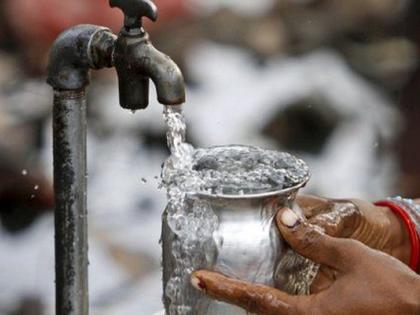BMC's proposed water cut: Experts warn against sensationalism
By Snehal Mutha | Published: February 14, 2024 03:06 PM2024-02-14T15:06:07+5:302024-02-14T15:07:29+5:30
Brihanmumbai Municipal Corporation (BMC) is poised to announce water cuts in Mumbai by month-end as water reserves in the ...

BMC's proposed water cut: Experts warn against sensationalism
Brihanmumbai Municipal Corporation (BMC) is poised to announce water cuts in Mumbai by month-end as water reserves in the city's seven lakes have plummeted to 49.37%, marking the lowest levels in three years. The decision to implement water cuts stems from concerns raised by water experts regarding a potentially harsher summer this year. While a few questions the urgency of the situation, suggesting that the current lake levels are not alarming.
Sitaram Shelar, Convenor of Pani Haq Samiti, expressed skepticism about the motives behind raising panic, suggesting it could be driven by administrative agendas rather than genuine concerns. He said, "Current Lake levels, while concerning, are not critical, especially considering the four-month window before the onset of the monsoon season in June. The heightened sense of alarm may be fueled by administrative motives rather than genuine necessity."
He also highlighted the complex dynamics of water distribution, noting that the BMC controls several lakes, including Upper Vaitarna, and may be reluctant to share resources with neighbouring municipal corporations facing severe water shortages, such as Thane, Kalyan-Dombivali, Navi Mumbai, Ulhasnagar, Bhiwandi-Nizamapur, Vasai-Virar, Mira-Bhayandar, and Panvel. Shelar cautioned against sensationalism, suggesting that the current situation could be manipulated to generate media hype. "If a Mumbaikar requires 100 litres, the BMC has the capability to provide double that amount", added Shelar,
On Tuesday, the water stock dipped to half its total capacity, contrasting starkly with last year's levels of 54.89% on the same day and 57.39% in 2022. The water stock has reached its lowest in the past three years. BMC is likely to announce water cuts in Mumbai by the end of this month, with water stock dipping to 49.37 per cent in the seven lakes that supply the city. The seven lakes supplying water to Mumbai are Upper Vaitarna, Modak Sagar, Tansa, Middle Vaitarna, Bhatsa, Vehar, and Tulsi, located within Sanjay Gandhi National Park or in neighboring districts. BMC is looking for an additional supply of water from Bhatsa and Upper Vaitarna.
The possible reasons for declined water levels are said to be soil erosion in the western ghats and Sahyadri region, where the lakes are located. "Soil erosion due to deforestation has been identified as a primary factor contributing to declining water levels in the lakes. Deforestation leads to the loosening of soil, which is then washed into the lakes during the monsoon, reducing their water volume," said Gopal Javeri, founder of Mumbai March and water conservationist. Additionally, Javeri pointed out that rising temperatures and decreased greenery around water bodies have accelerated evaporation, further depleting water levels, particularly in December and January.
Concerns extend beyond immediate water management issues, with environmentalists like Amrita Bhattacharya highlighting that Mumbai had a warmer winter and El Nino the temperature is going to further increase and faster evaporation of water in the lake will happen. Also, the possibility of a warmer summer. Unfortunately, the planning agencies like BMC and MMRDA are not looking at addressing the larger issue of Global Warming.
She said, " "In Mumbai, myriads of infrastructure projects are being planned and executed through forest, wetlands and mangrove areas. Coastal Road and Goregaon Mulund Link Road will bring more cars on the roads and increase the carbon footprint. These projects are also creating PM 2.5 pollution in the city, which is leading to health hazards, impacting overall climate and water system."
Open in app